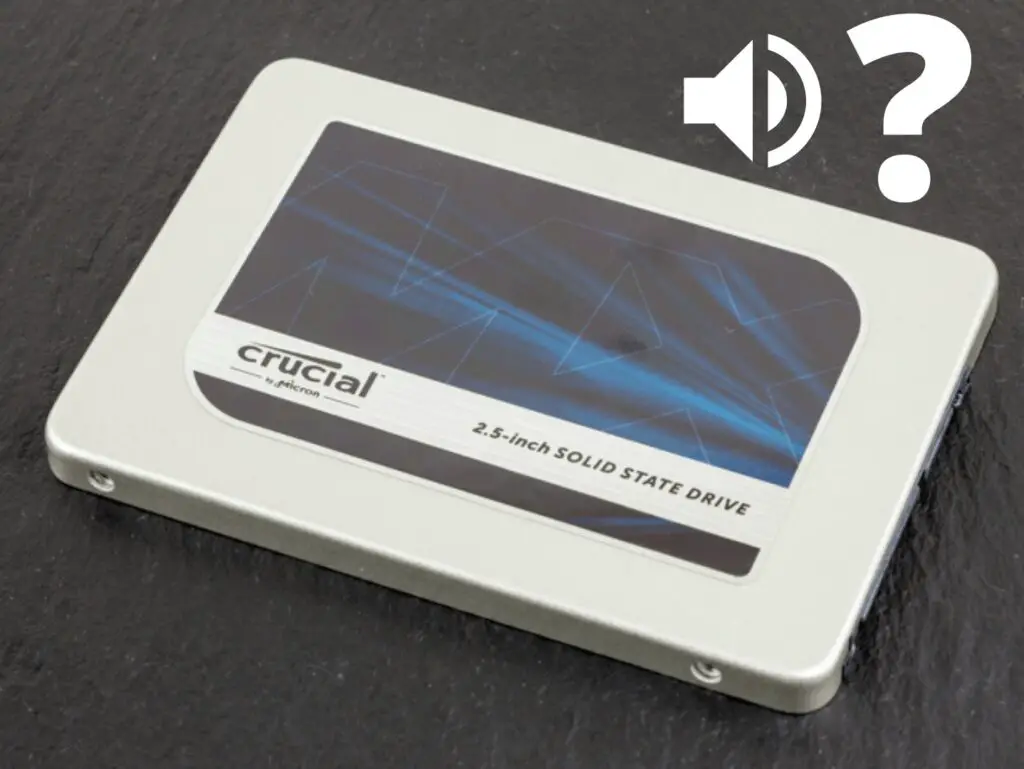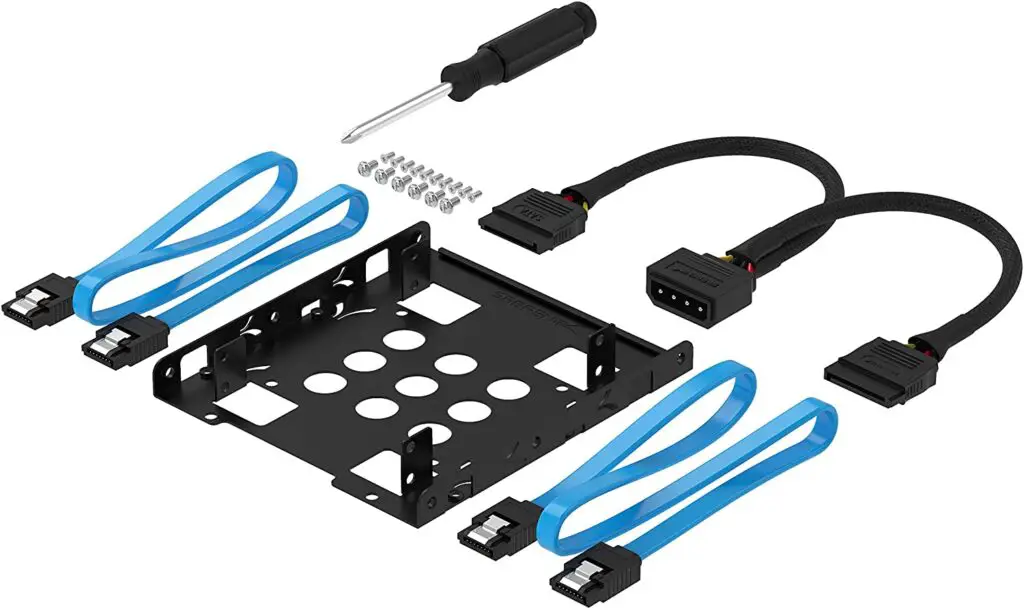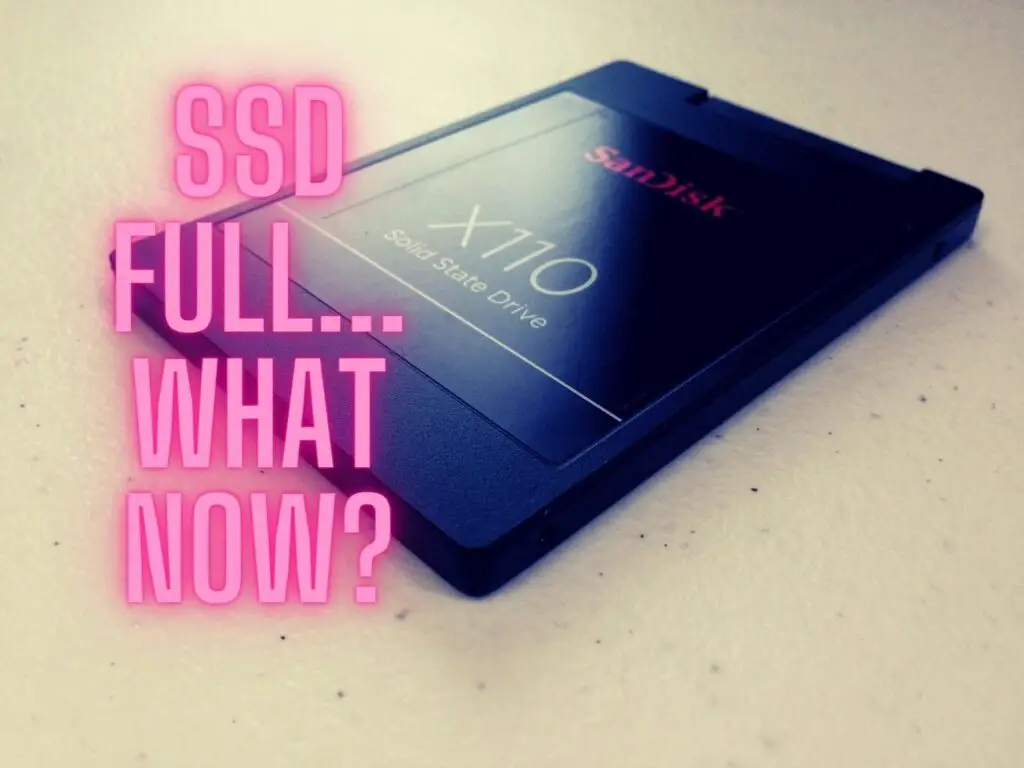SSDs are certainly the next standard of computer storage. They provide more speed and efficiency compared to conventional HDDs.
If you’re looking to upgrade your computer storage to an SSD or already have one, you may be curious to know if they should make noise or not.
Here, we’ll discuss everything you need to know about SSD noise. So lets dive in…
SSD Noise Explained in a Nutshell
SSDs consist of flash memory cells that are statically affixed and stacked in the SSD enclosure. They contain no movable parts and hence no significant noise is produced. SSDs however do make ‘electrical noise’, which is quite insignificant and normal for the operation of most electrical devices.
Table of Contents

What Noise do SSD Make?
While we could be used to attributing some of the noise produced by our computers to the HDDs, not the same is to be said where SSDs are concerned.
This fact is down to how different these two types of storage media are assembled and work. The HDD has layers of magnetic discs where the data is stored and a magnetic head that reads and writes this stored data.
The discs rotate when a read/write task needs executing. When tasks need execution, this magnetic head has to move around the different discs as they rotate. This action allows it to read from the correct disc and disc segment that holds the needed data.
This whole process emits some noise with which we may be familiar.
SSDs as a standalone component within your computer system, however, don’t produce any noise on their own. This fact is because they comprise flash memory cells that remain in the same position on board the SSD. (i.e. no movable parts present)
What are the Typical Noise Levels that SSD Emit?
Most of us are, to some degree, used to noise from our computer HDDs. The fact that they produce noise isn’t surprising given their architecture.
It consists of several mechanical components (movable parts). These movable parts (i.e. rotating discs and magnetic heads) collective contribution is responsible for the noise a typical HDD produces.
With SSDs, their flash memory technology means that they have no movable parts. This fact implies they do not emit noise.
Strictly speaking, however, it should be imperative to realize SSDs still have multiple components. (i.e. capacitors and inductors)
Since they run on electricity, these components are subject to expansion and contraction as they may get slightly hot while operating. (Temperature of nearby components can also affect this)
When these expansions and contractions occur, although slight, are sometimes enough to create some vibrations. These vibrations are enough to move the air around it.
The result of this air’s movement is this noise, typically termed as electrical noise. Electrical noise falls around the 20 Hz frequency.
This frequency mark on the human hearing spectrum is essentially the lowest noise levels humans can pick up.
Is it Normal for SSD to Make Noise?
SSDs employ the use of flash memory cells. These memory cells (also called NAND chips) have a fixed position onboard the SSD.
HDDs, on the other hand, use magnetic technology. This difference means that there are multiple magnetic discs layered in the HDD. They’re coupled with a magnetic head (that reads and writes data onto the discs).
When a read or write task needs to perform, the difference in architecture means they work differently.
Looking at HDDs, after instructions are sent their way, the instructions are directed to the magnetic head to get to the correct disc and partition. The disc in question rotates to allow the head to read the relevant sector. Looking at SSDs, they have no mechanical parts that need to move so that a read or write command can be executed. Because of this, they produce no noise.
Do NVME Drives Make Noise?
NVMe SSDs are connected to the computer via a PCI bus situated on the motherboard.
Despite their different form factor, they essentially have the same components.
SSDs have no movable parts within them that create any noise. NVMe SSDs in this regard aren’t exceptions.
There, however, have been several reports claiming that these SSDs do produce some noise. This ‘noise’ phenomenon can be explained…
Every component on the computer has a connection to the PSU (Power Supply Unit).
Depending on the demands of a task currently being executed by each part and its settings, they use up different voltages. That said, when an NVMe SSD is supposedly making noise, that noise can usually be attributed to another part, likely the CPU in this question.
As current flows through it and other components, they produce what is known as ‘coil whine’. It is this sound that is inaccurately attributed to the SSD in this case.
SSD Noise Types Explained:
To get a better understanding (or debunking thereof) of SSD noise, let’s briefly highlight some of the noise types commonly attributed to SSDs:
SSD Making Noise like HDD
SSDs use flash memory cells to store their data. SSDs have a DRAM (Dynamic RAM) component where the SSD caches its data. This cache essentially holds exact directions to the data stored on the SSD’s memory cells. When data is requested from the SSD, it first refers to its cache and then directed to the data’s position on the memory cells.
On the other hand, HDDs have magnetic discs where they store their data. These discs rotate at different speeds depending on the HDDs specifications and the demands of the task. The magnetic head (responsible for reading data on the discs) also moves around the discs during operations.
These mechanical components and their movements are what we are familiar with as HDD noise.
If you’ve been experiencing this noise despite an SSD upgrade, it could be down to two main reasons:
- The device you have onboard is not an SSD.
- The device you have is a hybrid SSD. Hybrid SSDs have both magnetic discs within them and the SSDs signature NAND cells.
SSD Making Grinding Noise
A computer consists of multiple movable parts within it. As they work and toil for the system, they move around, creating some noise.
SSDs, on their own, have no movable parts within them.
If you start experiencing a grinding noise after an SSD installation, rest easy it shouldn’t be the SSD making the noise.
A grinding noise is quite common for some components when they’re malfunctioning. The fan is one of the culprits in this regard.
It has tiny bearings within it that aid its rotation process. If they are improperly cared for or incur some damage, they produce a distinct grinding noise. Check your fan bearings if you experience a grinding noise after an SSD upgrade.
SSD Making High Pitched Noise
A high-pitched noise isn’t a foreign occurrence on computers. Consider how many parts are present on your computer.
They are each made from varying materials, and all use the present electric current supplied by the PSU to power up and function.
Different parts need varying amounts of voltage and current to function. This fact implies that they need a power regulating component to function adequately.
Given the presence of this component (i.e. an inductor), a phenomenon called ‘electromagnetically induced acoustic noise’ occurs. This sound is what is getting termed as high pitch noise. This noise is also known as coil whining.
On its own, an SSD can produce this type of sound which is so quiet, it’s only just audible when it occurs.
SSD Crackling Sound
A crackling sound isn’t all that unfamiliar to any electrical device.
In this case, if you’ve recently added an SSD to your system and start experiencing a crackling noise, some investigation is needed before blaming the SSD. A crackling noise is characteristic of a few other problems your computer might have. Some of the common ones include the following:
- First, it could be a problem with your audio setup. If the audio drivers, connection or the speakers themselves have issues, this noise is to be expected.
- Secondly, it could be because one of your circuits has shorted somewhere. This can be a costly problem if not addressed ASAP.
SSDs on their own can’t create this type of sound.
SSD Making Clicking Noise
For conventional HDDs, a clicking noise meant it was more than likely out of action or about to be.
If you’re sure that what you have installed is an SSD and not a HDD or hybrid SSD, then the noise has another source. The most likely candidate when a clicking noise starts is a clogged fan.
Other parts that have spinning components like DVD drives should be considered too.
SSD Making a Whining Sound
A whining sound emanating from your computer system isn’t all that unusual. In this context, this noise is called coil whine.
Coil whine is emitted by any number of components that use electricity. They have a part that is responsible for current and voltage regulation.
This part, responsible for regulating the amount of current to this device, creates this sound. SSDs can emit this sound at a low frequency which one can hear in a quiet room.
How To Reduce SSD Noise
Upgrading to an SSD has many benefits for your system. Unlike the mechanical HDD that produces a lot of noise, SSDs have no mechanical components that can render them noisy.
If you’re experiencing some noise after switching to an SSD, a proper investigation of your other computer parts is imperative before laying blame.
SSDs do make ‘electrical noise’ but this is not so obvious and you generally would not pick up the sound without lending your ear to the SSD. This noise is common with electronic components and is quite insignificant and normal for the operation of the SSD.




